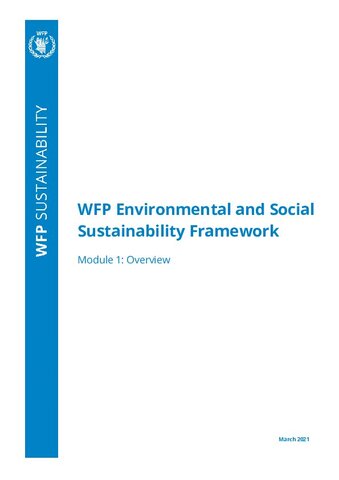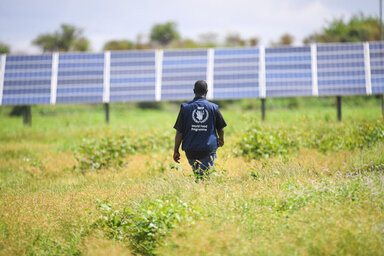
A zero-hunger world requires a socially equitable, clean and healthy environment – which is why the World Food Programme (WFP) is committed to applying the highest standards in its interactions with the people, communities and governments we serve, and the natural environment on which we all depend. Environmental Sustainability is therefore one of our cross-cutting priorities in the 2022-2025 WFP Strategic Plan.
Our approach
WFP integrates sustainability across our programmes and operations by following an Environmental and Social Sustainability Framework (ESSF). This consists of a set of principles, standards and tools, aligned with international regulations, that ensure we operate at the highest possible standards and limits potentially negative impacts on people and the environment.
| Document | File |
|---|---|
| How to submit complaints related to environmental and social matters to WFP |
PDF | 470.56 KB
Download
|
| WFP Environmental and Social Sustainability Framework |
PDF | 480.75 KB
Download
|
| WFP Environmental and Social Standards |
PDF | 437.6 KB
Download
|
| WFP Environmental and Social Safeguards for programme activities |
PDF | 553.13 KB
Download
|
| WFP Environmental Management System |
PDF | 313.14 KB
Download
|

